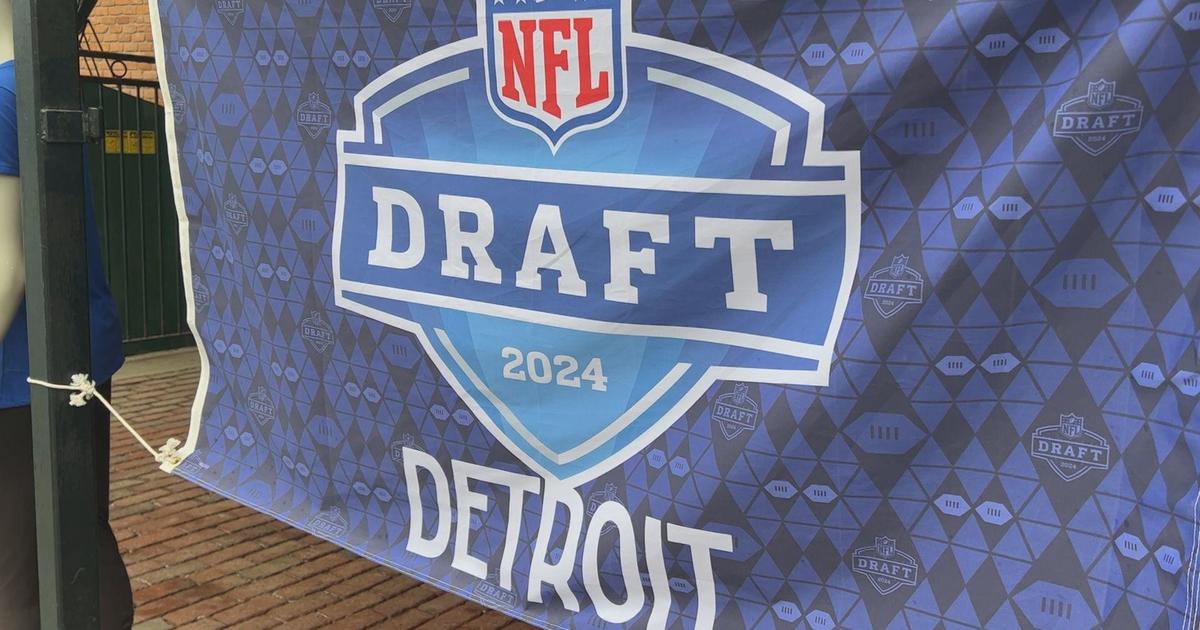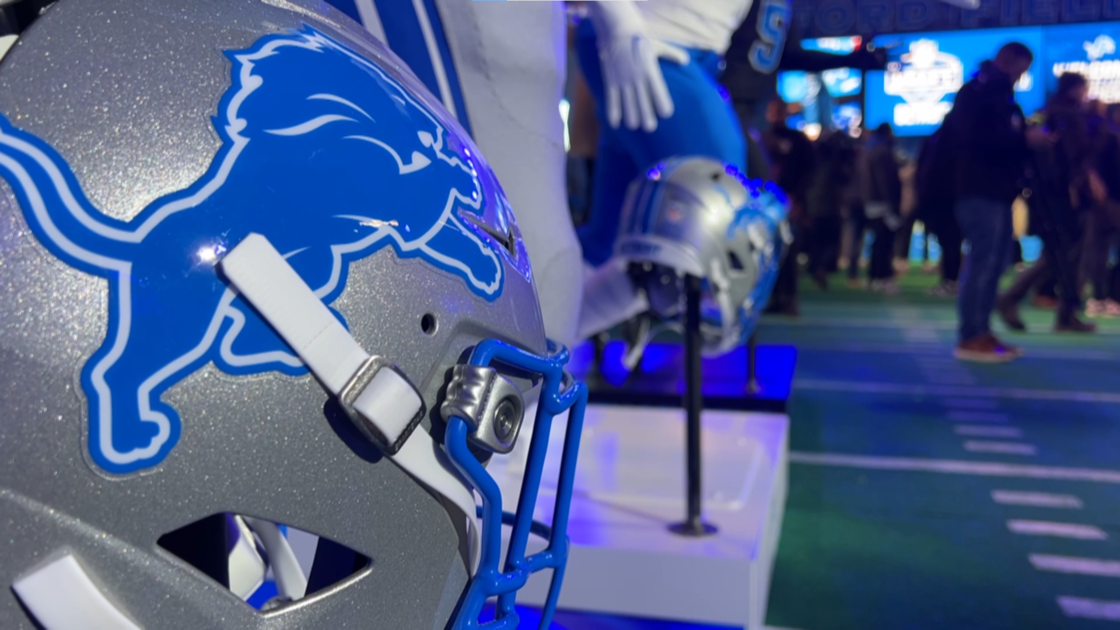Matt's Favorites: Cool Incubator, PLM Training, Computer Composer And More
So it's Monday, and ugh, the arctic blast is back with a vengeance. Supposed to get colder every day this week until finally bouncing back into the 30s on Saturday, and you know it's bad when you're actually excited about the 30s. Will this madness never end? Well, take heart. Spring will arrive -- and so will your tech news from me, as long as I have anything to say about it!
* A Chicago venture capital firm is offering three months' free rent in a business incubator to qualifying Detroit-area startups. Lightbank, an early-stage VC firm with $200 million under management and several big tech wins in its history, has created The Warehouse at 600 W. Chicago Ave., where spaces begin at $300 a month with three months rent-free. I talked to Lightbank partner Paul Lee Friday and checked out the website at www.thewarehousechi.com. Looks very cool. Check it out if you'd like a location in the Windy City where you'll be, in Lee's words, "immersed in an ecosystem, surrounded by hard-working venture-backed entrepreneurs." Lightbank has one Michigan-based portfolio company, Benzinga, the online financial media outlet. "We're really encouraged with the DNA coming out of Michigan," Lee said, adding that recent grads from the state's schools are "entrepreneurial, they're very smart, they're scrappy."
* Congrats to Automation Alley on the opening of its Product Lifecycle Management Center at Oakland University last week. The center will address southeast Michigan's need for affordable training and certification of local employees, students and individuals in product lifecycle management -- the technologies they used to call computer-aided design and engineering. (Like what isn't computer-aided now?) Located at OU INC, a SmartZone business accelerator on the OU campus, the center will offer PLM training and certification using cutting-edge equipment and software. Partners include Siemens, the Michigan Economic Development Corp., Geometric Solutions, SolidThinking Inc. and OU's School of Engineering and Computer Science. Other technologies offered will include digital factory simulation, 3D scanning and 3D printing. In addition, the center will help to grow the talent pipeline for Michigan's small to medium-sized manufacturers. A consulting and technical services program will help companies move from traditional design and manufacturing methods to the latest in digital processes. And a matching program will create an education pipeline, pairing job seekers and students trained in PLM with local manufacturing companies interested in hiring interns and employees. To learn more about the center, contact its director, Alex Violassi at (248) 648-4701 or violassia@automationalley.com.
* Royce L. Cole, a SolidWorks software engineer at DASI Solutions LLC in Pontiac, can add another title to his resume -- music composer. A week ago, on Monday, Feb. 17, the Wayne State University Wind Symphony premiered an original composition by Cole, called "The Significance Of It All," in a performance at the Max M. Fischer Music Center in Detroit. Cole says the 11-minute-plus piece took him about six months to complete. He said he started composing while a middle school student -- back then, on a Commodore computer. "The Significance Of It All" was commissioned by Cole's former band director at Lake Orion High School, Jeffrey Jones, who is now a Masters student at Wayne State. A personal letter, a few musical pieces and a poem from Jones were the inspiration for this composition. When asked if there was a relationship between his love of composition and work at DASI Solutions, Cole said, "Both writing a program and a composition one small bite at a time produces the end work." More information about Cole's upcoming work can be viewed on his website, www.roycelcole.com. DASI assists in the implementation of computer-aided design and engineering technologies used in the product development process by the designing engineer. DASI Solutions is a value-added reseller for SolidWorks 3D software solutions and dealer for Stratasys 3D printers. The company has authorized sales, training, and technical support facilities located throughout the Great Lakes Region. More at www.dasi-solutions.com.
* The Kalamazoo-based medical device maker Stryker Corp. has launched a device to help surgeons treat ischemic stroke -- a stroke caused by a clot in a blood vessel inside a patient's brain that blocks blood flow to part of the brain. The new Trevo XP ProVue Retriever expands the ProVue Retriever line with additional size and shape options for doctors. Stryker says the Trevo ProVue Retrievers are the world's first stent retrievers with full-length visibility and are built on Trevo technology which has delivered strong clinical results and positive patient outcomes for acute ischemic stroke patients. The Trevo XP ProVue Retriever is supported by robust clinical evidence from the TREVO and TREVO 2 clinical trials, which demonstrated a high rate of good clinical outcomes compared to the earlier generation Merci Retriever. Additionally, physicians participating in the Trevo Retriever Registry, a multi-center, international data collection study, will be collecting real world data on the Trevo XP ProVue Retriever. The device has been granted 510(k) market clearance by the U.S. Food and Drug Administration and is also available in international markets where it has been cleared for sale. More at www.stryker.com.
And now the national and international stuff, courtesy of CBS News, CNet's News.com, and others...
* A deep freeze has settled in over the Great Lakes this winter and a new image released by NASA shows the astonishing extent of the ice cover as seen from space. NASA's Aqua satellite captured this image of the lakes on the early afternoon of Feb. 19, 2014. At the time, 80.3 percent of the five lakes were covered in ice, according to the Great Lakes Environmental Research Laboratory, part of the National Oceanic and Atmospheric Administration. Earlier this month, ice cover over the Great Lakes hit 88 percent for the first time since 1994. Typically at its peak, the average ice cover is just over 50 percent, and it only occasionally passes 80 percent, according to NASA's Earth Observatory.
* Mark Zuckerberg of Facebook and Virgina Rometty, CEO of IBM, will deliver keynote speeches; Samsung is expected to unveil the highly anticipated new Galaxy S5; and Nokia might finally be going Android. We'll know for sure on Monday, but some companies have already started announcing new products ahead of the official start of the Mobile World Congress, which runs Feb. 24-27 in Barcelona, Spain. Some of the early news: Mozilla has new partnerships to carry its browser-based OS to high-growth, low-cost markets like Indonesia where iOS and Android are vulnerable. Also: more power at the same price from Alcatel and ZTE, the first LTE Firefox OS phone, and a 7-inch tablet.
* If you were excited about the possibility of taking a one-way trip to Mars in the next decade and you just happen to be an observant Muslim, you may suddenly be out of luck. The Khaleej Times of Dubai reports that a fatwa committee has forbidden Muslims from taking a one-way trip to the Red Planet. You may recall that the Mars One project aims to send a group of colonists to Mars as soon as 2024, followed by a second group a few years later. At the moment, there is no technology available that would allow for a return trip from Mars, so it is truly a one-way ticket for the colonists, who may also become reality TV stars in the process. The committee of the General Authority of Islamic Affairs and Endowment in the United Arab Emirates that issued the fatwa against such a journey doesn't have anything against space exploration,Elon Musk's Mars visions, or anything like that. Rather, the religious leaders argue that making the trip would be tantamount to committing suicide, which all religions tend to frown upon.
* Here's an upside of the Polar Vortex -- fewer stinkbugs in the Washington, D.C. area. (We will still have Congress, however.) The punishing, prolonged blasts of arctic air this January proved too much for most stinkbugs to overcome according to Virginia Tech field researchers.
* A Japanese company is proposing to build a giant solar power station on the Moon and beam the power back to earth as microwaves. Sure, fine, as long as microwaves that powerful never miss their target.
* A team of Caltech researchers may have developed a way to tremendously increase the speed of the Internet. It all boils down to a single-frequency laser. Why lasers? Light is one of the best ways to transmit information, as is done via optical-fiber cable. But for laser lights to tap into this potential, they must be as close to a single frequency as possible. It's a challenge that researchers have been attempting to tackle for years. The discovery could significantly increase the rate of data transmission in the optical-fiber network, the "backbone of the Internet," according to the press release.
* Google reportedly is developing an app that would automatically connect users with its Google WiFi hotspots. The app would first be used at Starbucks, as Google continues to replace AT&T as the official WiFi network at the coffee chain. According to Engadget, Google is testing Android and iOS versions at its Mountain View, Calif., headquarters. The site did not have word on if, or when, the app will be publicly released.
* Excepting some lava bombs and a tsunami in its harbor, the new 3D "Pompeii" movie, in theaters since Friday, stays relatively true to reality, scientists say. In fact, laser technology and aerial photos (digitally enhanced) ensured an impressive recreation of the city of Pompeii, from the lavish villas down to the paving stones. And, of course, one of the worst catastrophes in history: the eruption of Mount Vesuvius in A.D. 79, which entombed the city and its residents in mammoth mounds of volcanic ash.
* Smart and connected home technology -- once the province of science fiction movies -- has moved very close to the mainstream in the last year, with a wealth of devices now available to automate your house or apartment. Two years ago, this product category didn't really exist at all, but now there are electronic door locks from Yale and Kwikset, music players like Sonos, smart thermostats like Nest, and even the Philips Hue, a wirelessly controlled light bulb. And that's just scratching the surface.
* Netflix and Comcast have reached an agreement aimed at smoothing the streaming of Netflix content to the cable company's customers, ending a dispute that included suggestions of throttled traffic. The video-rental company has agreed to pay Comcast for direct access to its broadband network, sources told The Wall Street Journal, which was first to report the deal. Netflix released data last month that showed the average Netflix streaming speed decline 27 percent since October.
* Delta in the United States was one of the first to jump on the Gogo bandwagon and do it hard, quickly rolling out the in-flight internet service more or less across its fleet. But, there was always one big missing piece: international. Flights that crossed an ocean were left out of the connectivity fun, even when they were feet-dry over domestic lands. Back in 2012, Delta announced that it would be adding Gogo's satellite-based international service to its fleet as well, with a planned implementation date of 2013. Now, in 2014, it's finally happening.
* Who wouldn't fall in love with Scarlett Johansson whispering cinema listings in your ear? We're taking a step toward the Siri-with-added-personality portrayed in the movie "Her" with the next generation of natural language interaction: a virtual personal assistant that gives you more than just a list of search results and even learns what you like.
* Amazon is gearing up to take on Apple and Roku, again. Industry sources say Amazon is getting ready to launch a Web TV box that would compete with Apple TV and Roku's line of products, which make it easy to move video from the Internet onto your TV.
* Don't expect one whole heck of a lot of tweets coming out of Venezuela in the immediate future as President Nicolas Maduro's government has shut down the internet and select TV channels.



